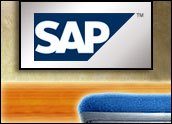
Attorneys for Oracle opened their challenge of the U.S. government’s attempt to block the company’s purchase of PeopleSoft by pointing to the recently revealed Microsoft and SAP merger talks as proof that the enterprise application business is much larger than regulators contend.
Department of Justice (DOJ) lawyers, meanwhile, billed the news that Microsoft and SAP had detailed talks about a possible merger — considered a bombshell by some — as a mere distraction.
In opening statements, DOJ antitrust specialist F. Claude Scott reiterated the government’s contention that enabling Oracle to acquire PeopleSoft would leave only two competitors in the “high function” software market: SAP and Oracle. Scott defined “high function” software as tools that require extensive customization and updating. The software is considered out of reach of all but the largest and wealthiest companies.
Real Harm
If allowed to complete its proposed $7.7 billion takeover of PeopleSoft, Oracle would have “free rein” to raise prices and harm customers, Scott said, and almost certainly would eliminate customer discounts it routinely provides because of competition from PeopleSoft.
Oracle scoffed at the “high function” definition, saying it is too vague to carry any weight in the trial. Lead attorney Daniel Wall said it is “fiction” that the competitive landscape would be reduced to two players and described the government’s case as “anecdotal- and vignette-driven.”
Wall said regulators have ignored the impact of smaller software companies, larger technology companies that currently have small shares of the market, and firms that have made software a sideline, such as Fidelity Investment’s financial software development unit.
Oracle Fights Injunction
Oracle needs to convince U.S. District Judge Vaughn Walker — there is no jury hearing the case — not to issue a permanent injunction halting the takeover.
The company’s pretrial filings indicate it intends to show that other companies also participate in the market. Both Oracle and the government have Microsoft executives on their witness lists, and Oracle also has reserved the right to call bigwigs from Siebel Systems, Lawson Software and IBM to the stand.
On Monday, Oracle showed a video of vice president Keith Block discussing PeopleSoft and its position as an Oracle competitor. Afterward, Judge Walker asked the government’s lawyers how the takeover represented anything more than “good old-fashioned competition.”
After opening statements, Cox Communications CIO Scott Hatfield testified that his company had sought bids from both companies and that having only one available likely would lead to lower-quality offerings.
“Today, we see them competing with each other,” Hatfield said. “If there is less competition, the pressure to keep software quality up might be less.”
No Rush to Judgment
Gartner analyst Jeff Comport told the E-Commerce Times that even if Oracle manages to win the trial, it still will face a similar hurdle overseas, including objections from the European Commission as well as several private lawsuits and other stumbling blocks, such as PeopleSoft’s much-discussed “poison pill” provision aimed at preventing a hostile takeover.
The trial started with a bang and likely will feature several twists and turns, although the prospects of proprietary market information being made public dimmed Monday when the judge said he would limit that information’s distribution.
Either way, Comport does not see a quick resolution. “We still see a very low probability of this happening before the end of next year,” he said.














































Social Media
See all Social Media